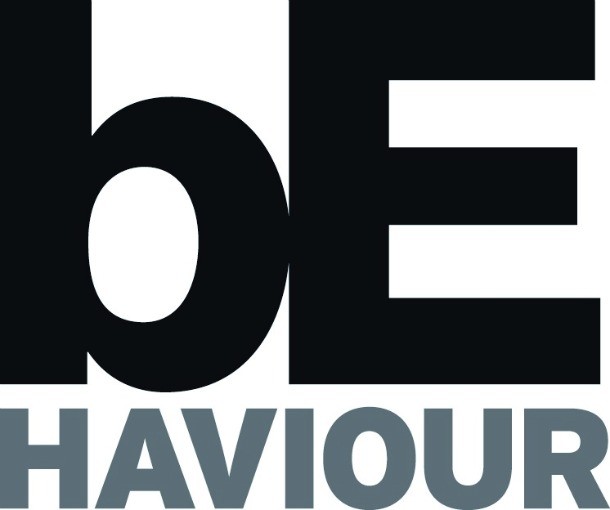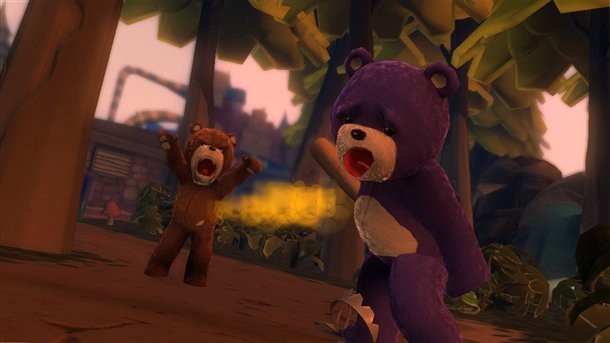Please support Game Informer. Print magazine subscriptions are less than $2 per issue
From A2M To Behaviour: The Future Of A Rebranded Studio

Recently, Canada-based developer Artificial Mind & Movement (A2M) changed its name to Behaviour as part of a rebranding initiative. The studio wants to renew its focus on original multiplatform IPs, but also has sequels planned for existing properties Wet and Naughty Bear. We caught up with Remi Racine, CEO, who shares what's in store for Behaviour.
What was the idea behind the original name Artificial Mind & Movement (A2M)? Why the change?
Prior to Artificial Mind and Movement we were actually named Behaviour. When I bought back the company from its shareholders in 1999, I wasn’t able to secure the Behaviour name at the same time. We had several projects in development and needed to come up with a new name. We chose Artificial Mind and Movement because it was representative of what we do, we bring the imagination to life through digital means. Even though we felt this new name was a good reflection of our work, we always felt like we left something behind in not having the Behaviour name, and when the chance came to re-secure it, we jumped at it.
As I’m sure you’re aware, a quick Google search of “A2M” brought up a few results from another phrase that shares the acronym that's NSFW to say the least. Was this considered when deciding to change the name?
We certainly were made aware of this a few years ago. The association is unfortunate and at times was a small distraction. Leaving that behind will be an added benefit of the rebranding, but was not a motivating factor for the change.
Rebranding the studio “reflects the renaissance of the company,” according to the announcement. What does this mean for Behaviour?
Over the years our success as a full service, work-for-hire development house sometimes overshadowed our ability to create IPs, whether they be our own or in collaboration with our partners. We have been involved in creating some successful interactive properties such as Jersey Devil, Scaler, Get on the Mic (Karaoke), Flow (Dance), Assault Heroes, Naughty Bear, and most notably Wet. Over our 18 years in business we have made over 120 products and sold over 32 million copies of our titles including several multi-million unit hits. Hand in hand with the name change is a strategy to be more visible to the consumers who play our games and within the industry, which is something that our work-for-hire projects haven't always afforded us in the past. We feel that the name Behaviour is a much more consumer friendly brand and one that is easier to remember.

What are some of the challenges in rebranding an established company?
The rebranding process for us wasn’t really that challenging considering that we were going back to a brand that our senior and some of our most influential staff had a great affinity for. With our newer employees the process came very naturally as the name has been very well received. The connection to who we are today is obvious. We are fortunate to have great partners in both work-for-hire and our original IP projects and all have been very supportive in our transition.
What was the idea behind the new logo?
We put a strong emphasis on the first part of the word "Be" because of all the different things Behaviour can... be. We are five unique and distinct development studios under one company and we have the capabilities to develop games for any platform, from traditional console and handheld titles to emerging areas like digital downloads, mobile, online browser-based games and now Facebook projects as well. We can be a work-for-hire studio adjustable to any needs, or we can be an independent developer of our own original content.
What are some of the challenges or benefits of being independent? Do you think the company will be able to maintain independent status over time?
The game business has evolved and changed quite a bit over the years and as an independent studio we are not immune to the challenges that the industry faces. We have mitigated a lot of the risks of these challenges by staying agile and developing across multiple platforms and categories of product. This allows us to realign focus to stay in lock-step with the momentum of the industry. This is part and parcel to the key benefit of being independent. We can leverage our agility and talent to create projects on new and established platforms without always having to take direction from a specific corporate owner.
How’s the game development climate in Canada?
The game development community is thriving in Canada. We were actually the first game development studio to open in Montreal so we have been here the longest and seen this industry blossom. Montreal has always been an entertainment and creative hub, from 2D animation to movie production and now video game development. Over the last few years we’ve seen development trade shows like GDC in Vancouver and MIGS here in Montreal materialize as a direct result of the maturation of the industry here in Canada.
 Behaviour has renewed its focus on creating new IPs according to the announcement, however I’ve noticed a few sequels are on the way (Wet, Naughty Bear), plus a large percentage of games in the company’s portfolio are based on established properties from Disney, WB, and the like. What can we expect from the company in the future? Can you provide any information of the types of games we may see?
Behaviour has renewed its focus on creating new IPs according to the announcement, however I’ve noticed a few sequels are on the way (Wet, Naughty Bear), plus a large percentage of games in the company’s portfolio are based on established properties from Disney, WB, and the like. What can we expect from the company in the future? Can you provide any information of the types of games we may see?
You’ll definitely see a nice balance of products across the existing and new platforms both in the work-for-hire space and new IP. We see significant opportunity in the online and connected spaces such as social gaming, casual MMO’s and mobile platforms such as the iOs devices. We see those experiences being connected to most of the existing and soon to be released traditional platforms. With our multiplatform development expertise we have a unique opportunity to traverse the many platforms. Having dedicated focus on all of these platforms allows us to do more than just exist on these devices, we look at how to maximize the experiences at every level and how those can truly interact where and when it makes sense.
Behaviour’s portfolio is quite diverse spanning across all platforms that now includes an unannounced Facebook game. A lot of people brush off Facebook games as something for the casual crowd, however is becoming more and more popular. What are your thoughts on Facebook as a gaming platform?
We make games for people who like to play games. Now more than ever the audience for games is expanding and platforms like Facebook and the Wii have taught us not to count out the so-called “non-gamers.” The Facebook user interacts with game experiences in ways that are very unique compared to traditional platforms. I think that as an industry we are only scratching the surface on how to engage Facebook users. Certainly with more and more seasoned developers bringing their expertise to the platform we are going to see this maturation come sooner rather than later.
What are your plans for mobile games in the future?
Mobile platforms are super important to us right now and going forward. In the past we have only dabbled in mobile platforms primarily due to the disparity of horsepower with the platforms we were developing for. The experiences being created before iOS, Android and now Win Mobile 7 often lacked depth both visually and creatively. With the current slate of mobile platforms we can provide experiences that are deep and rich and it really excites us as developers. We released Naughty Bear in September on iPhone and we have our tech up and running on iPad, Android and Win Mobile 7. We are in discussion for opportunities on all of these platforms and it is only a matter of time before you will start to see more projects from us in this area.










